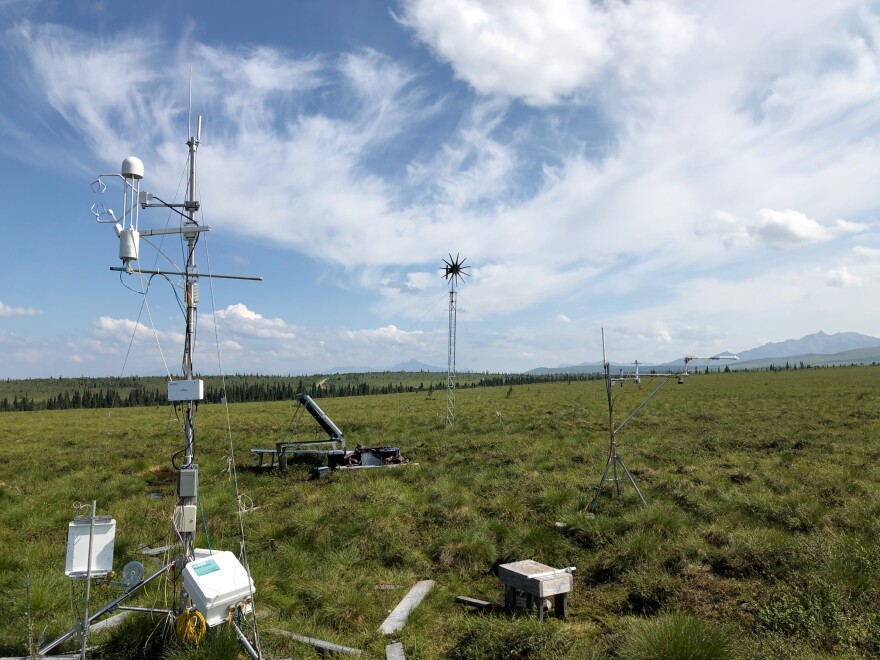New research conducted by Northern Arizona University in Alaska shows melting permafrost may be releasing a lot more carbon into the atmosphere than scientists previously thought. KNAU’s Melissa Sevigny reports.
Scientists developed a new method to directly measure soil carbon in experimental plots. They found over five years of warming temperatures, the top layer of soil lost a quarter of its carbon.
Ted Schuur, an author of the study inNature Geoscience, says, "That’s quite a bit, it’s quite fast…. The Arctic is a large store of carbon and the potential for that to end up in the atmosphere makes this climate change problem all the more difficult."
More carbon in the atmosphere means climate change speeds up and more permafrost melts, known as a “feedback loop.”
Schuur says carbon loss has been underestimated because previous methods didn’t account for how the earth’s surface collapses when ice melts. In future research, he wants to track the fate of the carbon to see how much ends up in the atmosphere and how much dissolves into waterways.







